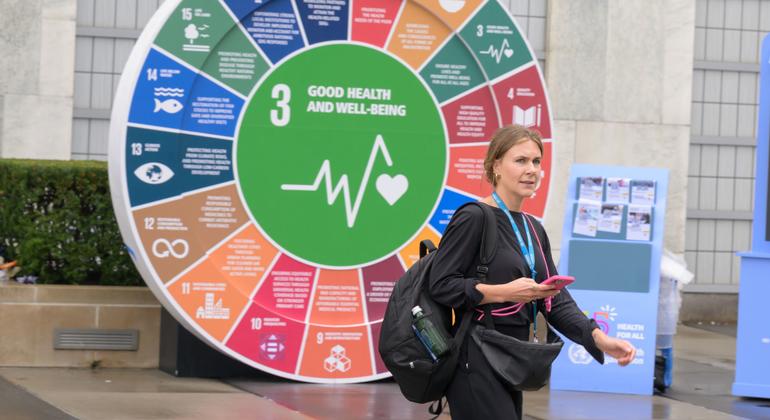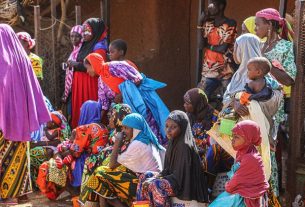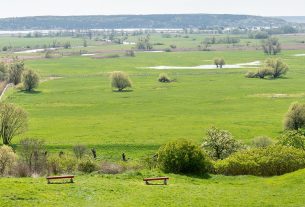Other key priorities to emerge were the state of the environment and ensuring responsible use of new technologies, such as Artificial Intelligence (AI), Secretary-General António Guterres added.
Against this backdrop, the UN’s visionary Our Common Agenda presents proposals and ideas that can bridge the gap, “between the world as it is and the world as we know it can be,” Mr. Guterres said.
The coming year of preparations for the Summit of the Future will be critical he told Member States, highlighting four main areas of work ahead.
The proposals and ideas in Our Common Agenda are bridges across the aspiration gap – between the world as it is, and the world as we know it can be
— Secretary-General Guterres
Renewing the social contract
Our Common Agenda emphasizes renewing the social contract based on human rights and the 2030 Agenda for Sustainable Development – the SDGs – the UN chief said.
This includes strengthening the public sector, creating green and digital jobs, ending violence against women, and promoting human rights.
“The high-impact initiatives set out at the SDG Summit will enable us to step up our activities,” the UN chief said.
Youth and the future
The report recognizes the key role of young people and future generations, harnessing their energy and creativity through a new UN Youth Office.
The goal is to make global governance more responsive and accountable to their needs, with a focus on climate and education, he said.
Transforming global governance
The report also places an emphasis on adapting intergovernmental decision-making to modern realities, including discussions on strengthening global governance in areas like health, environment, and digital cooperation.
Proposals for deep reforms to international financial architecture are gaining traction globally and will be pursued at key meetings, including the COP28 climate conference in Dubai this year, and next year’s Summit of the Future.
UN 2.0
The Secretary-General also highlighted that steps are being taken to transform the UN system by updating its culture and skills across key areas.
Initiatives include launching a Scientific Advisory Board, establishing a UN Futures Lab, and increasing engagement with stakeholders like civil society, parliamentarians, and the private sector.
Advisory bodies on regional government and artificial intelligence will also be set up, he said.
Next steps
Mr. Guterres highlighted his policy briefs on the proposals of Our Common Agenda, the report of the High-Level Advisory Board on Effective Multilateralism, and the SDG Summit in High Level Week that provide a successful model for next year’s marquee summit.
“Together, we have already taken significant steps towards the inclusive, effective, networked multilateralism that our circumstances demand,” he said, urging governments for their strong engagement in the coming days.



